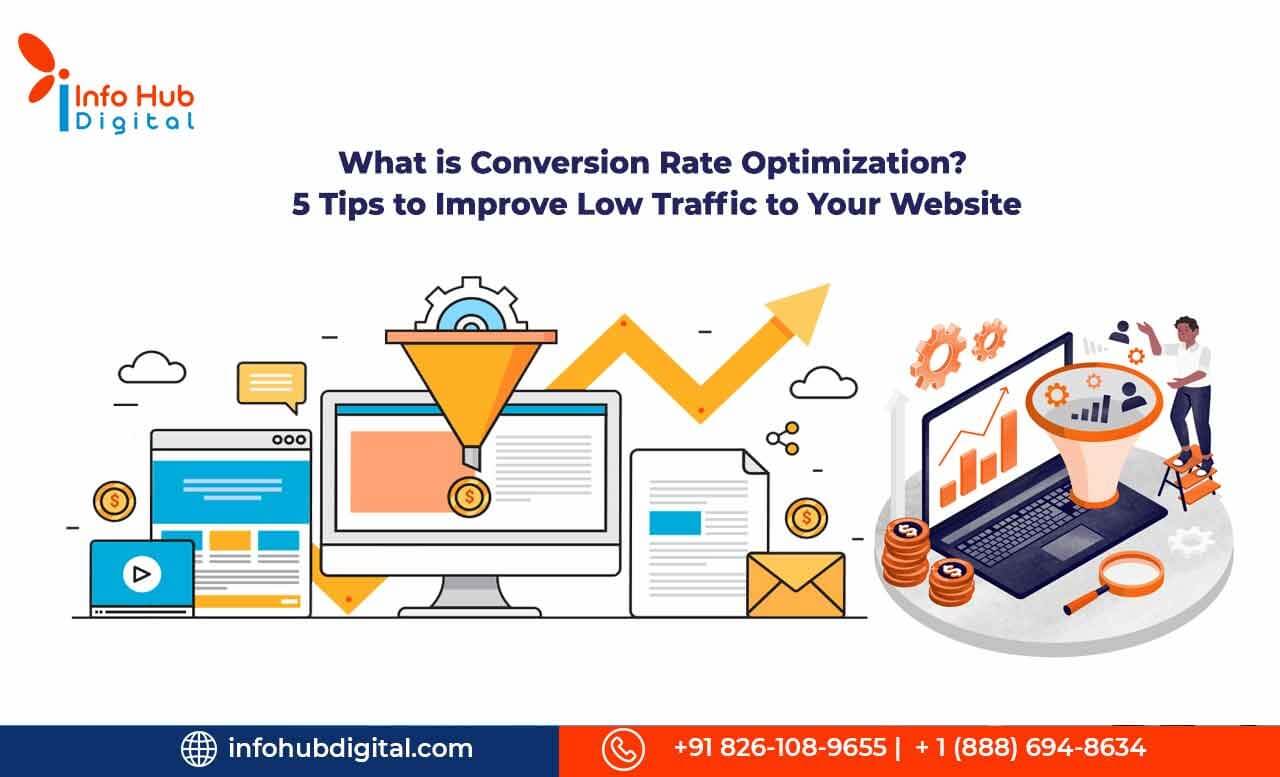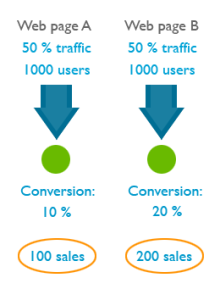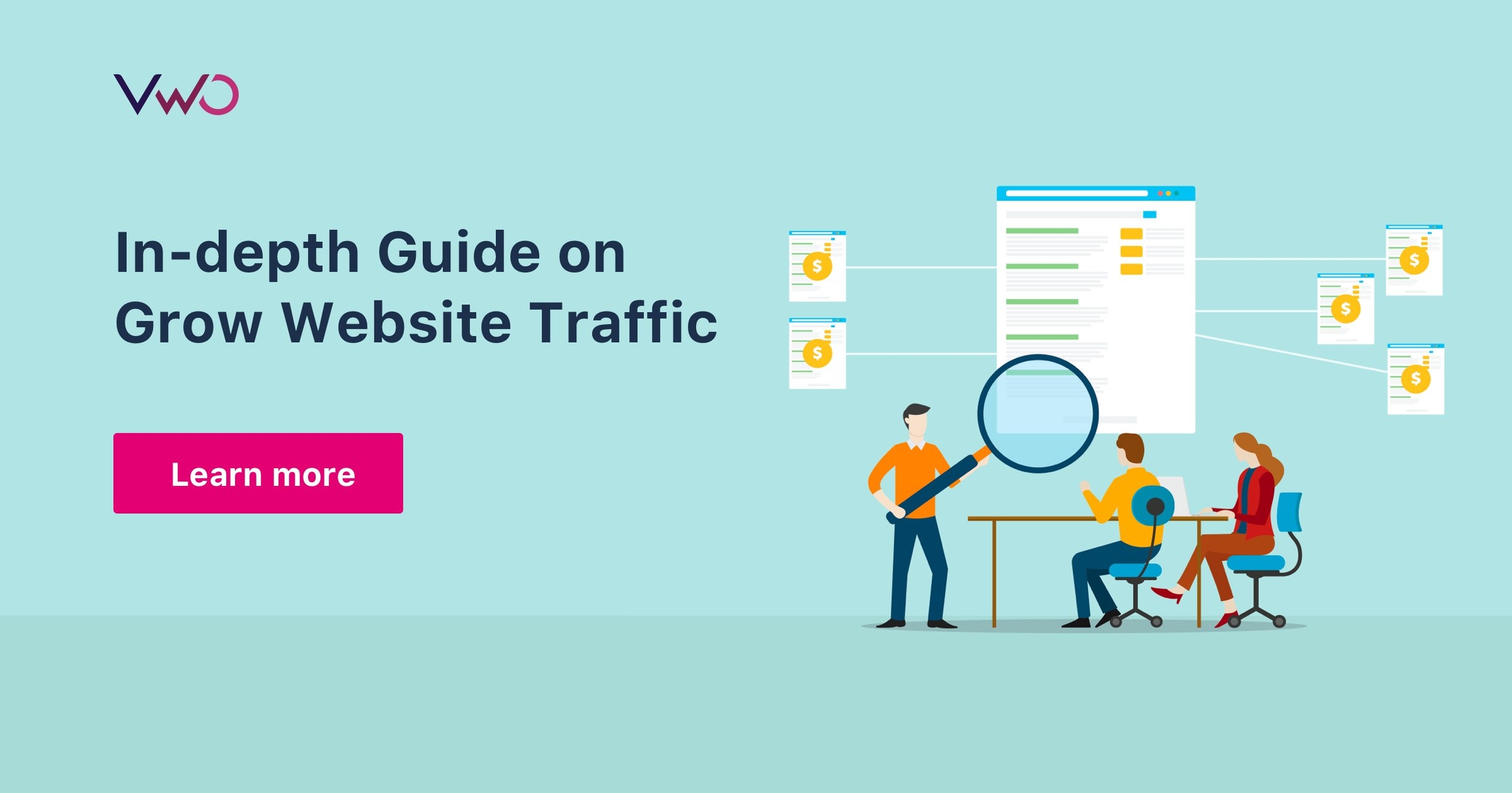Boost Website Conversions by Attracting High-Quality Traffic
Buy CPC Traffic | Buy Display Ads | Exclusive traffic sources | Buy Push Ads | Popunder ADS | Buy Native Ads | Buy Preroll Ads

Buy CPC Traffic | Buy Display Ads | Exclusive traffic sources | Buy Push Ads | Popunder ADS | Buy Native Ads | Buy Preroll Ads
Driving traffic to your website is essential, but not all traffic is created equal. In fact, the quality of the traffic coming to your site can have a significant impact on your conversion rates. If you want to increase conversions and generate more revenue, it's crucial to focus on attracting high-quality website traffic.
So, what exactly is high-quality website traffic? It refers to visitors who are genuinely interested in your products or services and are more likely to take a desired action on your site, such as making a purchase, filling out a form, or signing up for a newsletter. These visitors are not just browsing aimlessly; they have a specific intent that aligns with what your website has to offer.
One of the most effective ways to attract high-quality website traffic is through targeted marketing strategies. By identifying your target audience and tailoring your marketing efforts towards them, you can ensure that the right people are finding their way to your site. This can be done through various channels, such as search engine optimization (SEO), content marketing, social media advertising, and email marketing.
In addition to targeting the right audience, providing valuable and relevant content is crucial for driving high-quality traffic to your website. When visitors find your content helpful and informative, they are more likely to engage with your site and take the desired action. Creating compelling blog posts, videos, infographics, and other forms of content can not only attract high-quality traffic but also establish your brand as an authority in your industry.
In conclusion, increasing conversions requires more than just getting any kind of traffic to your website. By focusing on attracting high-quality website traffic that aligns with your business goals and providing valuable content, you can maximize your conversion rates and ultimately drive more revenue. Remember, it's not just about the quantity of traffic but the quality that truly matters.
Strategies to Attract Targeted Visitors

When it comes to driving high-quality website traffic, attracting targeted visitors is crucial for maximizing conversions. Here are some proven strategies to attract the right audience:
1. Define Your Ideal Customer: Before implementing any marketing strategy, it's important to have a clear understanding of your target audience. Create buyer personas to identify the demographics, interests, and pain points of your ideal customers.
2. Optimize Your Website for SEO: Search engine optimization (SEO) plays a crucial role in attracting targeted visitors. Conduct keyword research to identify relevant keywords and optimize your website's meta tags, headings, and content accordingly.
3. Content Marketing: Developing high-quality content that resonates with your target audience is a great way to attract targeted visitors. Create valuable blog posts, videos, or infographics that address the pain points and interests of your audience.
4. Social Media Advertising: Utilize the power of social media platforms to reach your target audience. Running targeted advertising campaigns on platforms like Facebook, Instagram, or LinkedIn can help drive quality traffic to your website.
5. Guest Blogging: Collaborate with influential bloggers or websites in your niche to contribute guest posts. By leveraging their audience, you can attract targeted visitors who are already interested in your industry.
6. Influencer Marketing: Partnering with industry influencers who align with your brand can help you attract targeted visitors. Their endorsement can drive traffic, improve trust, and increase conversions.
7. PPC Advertising: Pay-per-click (PPC) advertising allows you to target specific keywords and demographics to reach your ideal customers. Consider using platforms like Google Ads or rtb advertising to drive targeted traffic to your website.
By implementing these strategies, you can attract targeted visitors who are more likely to engage with your content, convert into customers, and ultimately increase your website's conversions.
Importance of Optimizing Landing Pages

When it comes to increasing conversions and driving high-quality website traffic, optimizing landing pages is crucial. A landing page is the first page that visitors see after clicking on a link or advertisement, and it plays a key role in turning these visitors into customers or clients.
By optimizing landing pages, you can ensure that your website visitors have a positive and engaging experience. This, in turn, increases the chances of them taking the desired action, such as making a purchase or submitting a form.
One of the main reasons why optimizing landing pages is so important is because it helps to provide a seamless and relevant user experience. A well-optimized landing page aligns with the expectations set by the advertisement or link that brought visitors to your website. It ensures that visitors find the information they were looking for and are encouraged to explore further.
In addition, optimizing landing pages also helps to improve your website's visibility in search engine results. By using relevant keywords and providing valuable content, you can increase your chances of ranking higher on search engine result pages and attracting organic traffic to your website.
Furthermore, optimizing landing pages can also have a positive impact on your rtb advertising campaigns. A well-optimized landing page can increase the effectiveness of your ads, leading to higher click-through rates and conversions. It ensures that visitors who click on your ads have a seamless transition and are more likely to take the desired action.
In conclusion, optimizing landing pages is essential for increasing conversions and driving high-quality website traffic. It helps to provide a positive user experience, improves search engine visibility, and enhances the effectiveness of your advertising campaigns. By investing time and effort into optimizing your landing pages, you can ultimately achieve better results and grow your online business.
Leveraging Social Media for Traffic Generation

Social media has become an essential tool for driving traffic to websites. By leveraging popular social media platforms, businesses can effectively reach a wider audience and increase conversions. Here are some strategies to consider when using social media for traffic generation:
Create Engaging Content: To attract traffic from social media, it is important to create high-quality, engaging content that resonates with your target audience. This can include informative articles, videos, infographics, or interactive content such as quizzes or polls. By providing valuable and shareable content, you can encourage users to visit your website and share your posts with others.
Optimize Social Media Profiles: Ensure that your social media profiles are fully optimized with relevant keywords, a compelling description, and a link to your website. This will help search engines index your profiles and increase your visibility. Additionally, including your website link in your bio or about section makes it easy for users to visit your website directly.
Utilize Hashtags: Hashtags are a powerful tool for increasing visibility and driving traffic. Identify relevant hashtags related to your industry or topic and include them in your social media posts. This will help your content reach a wider audience who are searching for or following those hashtags.
Promote User Engagement: Encourage user engagement by asking questions, requesting feedback, or hosting contests or giveaways. This will not only generate more interaction with your posts but also increase the likelihood of users visiting your website. Remember to respond to comments and messages promptly to show your audience that you value their input.
Collaborate with Influencers: Collaborating with influencers who have a large following in your niche can significantly boost your website traffic. By partnering with influencers to create sponsored content or promotional campaigns, you can tap into their audience and gain exposure to a wider demographic.
Utilize Social Media Advertising: Paid social media advertising can be an effective way to drive targeted traffic to your website. Platforms like Facebook and Instagram offer advanced targeting options, allowing you to reach specific demographics or audiences interested in your products or services. By creating compelling ad copy and visuals, you can entice users to click through to your website.
In conclusion, leveraging social media for traffic generation requires a strategic approach. By creating engaging content, optimizing your profiles, utilizing hashtags, promoting user engagement, collaborating with influencers, and utilizing social media advertising, you can effectively drive high-quality traffic to your website and increase conversions.
The Role of Content Marketing in Driving Traffic
Content marketing plays a crucial role in driving high-quality website traffic. By creating valuable and relevant content, businesses can attract a targeted audience and encourage them to visit their website. It involves the creation and distribution of valuable assets, such as blog posts, articles, videos, and infographics, with the aim of attracting and engaging potential customers.
When done correctly, content marketing helps businesses establish trust and credibility with their target audience. By providing valuable information and insights, businesses can position themselves as industry experts and thought leaders, making their website a go-to resource for users seeking relevant information. This can result in increased organic traffic as users discover and share the content, leading to more visibility and reach.
One of the key benefits of content marketing is its ability to improve search engine rankings. By incorporating relevant keywords and optimizing content for SEO, businesses can improve their website's visibility in search engine results pages. This results in increased organic traffic as more users discover the website through search queries.
In addition to attracting organic traffic, content marketing also helps businesses generate referral traffic. When businesses create valuable and shareable content, it is more likely to be shared by users on social media platforms, blogs, and other websites. This can lead to an increase in referral traffic as users click on shared links and visit the website.
To effectively drive traffic through content marketing, businesses should focus on creating high-quality and valuable content that meets the needs and interests of their target audience. They should also promote their content through various channels, such as social media, email marketing, and influencer outreach, to reach a wider audience.
1. Increased organic traffic through improved search engine rankings
2. Generation of referral traffic through shared content
3. Establishing trust and credibility with the target audience
4. Positioning the website as a go-to resource for relevant information
In conclusion, content marketing plays a vital role in driving high-quality website traffic. By creating valuable and relevant content, businesses can attract a targeted audience, improve search engine rankings, generate referral traffic, and establish themselves as industry experts. It is an essential strategy for businesses looking to increase conversions and achieve their marketing goals.
Tracking and Analyzing Conversion Rates

To increase conversions on your website, it is essential to track and analyze your conversion rates. Conversion rate is the percentage of visitors who take a desired action, such as making a purchase or signing up for a newsletter. By properly tracking and analyzing your conversion rates, you can identify areas of improvement and make data-driven decisions to optimize your website and increase your conversion rates.
Here are some steps to help you track and analyze your conversion rates:
Set up conversion tracking: Start by setting up conversion tracking on your website. This can be done by installing tracking codes or pixels provided by advertising platforms such as Google Ads or Facebook Ads. Conversion tracking allows you to track specific actions taken by visitors on your website, such as completing a purchase or filling out a contact form.
Use analytics tools: Utilize analytics tools, such as Google Analytics, to track and analyze your website's performance. These tools provide valuable insights into visitor behavior, traffic sources, and conversion rates. By monitoring these metrics, you can identify patterns and trends that may impact your conversion rates.
Monitor conversion funnels: A conversion funnel is the process a visitor goes through from landing on your website to completing a conversion. Monitor your conversion funnels to identify any bottlenecks or drop-offs in the process. By understanding where visitors are leaving the funnel, you can make improvements to increase conversion rates at each stage.
A/B testing: Implement A/B testing to experiment with different variations of your website and landing pages. By testing different elements, such as headlines, call-to-action buttons, and layouts, you can determine which variations result in higher conversion rates. This data-driven approach allows you to make evidence-based decisions to optimize your website for better conversions.
Segment your data: Analyze your conversion rates by segmenting your data. This could include segmenting by traffic source, device type, or demographic. By understanding how different segments of your audience perform, you can tailor your marketing strategies and website optimizations to target specific segments for better conversions.
Remember, tracking and analyzing your conversion rates is an ongoing process. Continuously monitor your metrics, experiment with different strategies, and make data-driven decisions to optimize your website and drive higher conversions.
How can I increase conversions on my website?
To increase conversions on your website, you can focus on driving high-quality traffic. High-quality traffic refers to visitors who are more likely to be interested in your product or service and are more likely to make a purchase. By targeting specific keywords and demographics in your marketing efforts, you can increase the chances of attracting high-quality traffic and ultimately increase conversions.
What is high-quality website traffic?
High-quality website traffic refers to visitors who are genuinely interested in your product or service and are more likely to convert into customers. These visitors are more likely to spend more time on your website, engage with your content, and take the desired action such as making a purchase or filling out a contact form. High-quality traffic can be achieved through targeted marketing efforts and by attracting the right audience to your website.
How can I drive high-quality traffic to my website?
There are several strategies to drive high-quality traffic to your website. One approach is to target specific keywords in your SEO efforts and optimize your website content to rank higher in search engine results for those keywords. Another strategy is to use paid advertising platforms such as Google Ads or social media ads to target specific demographics and interests. Additionally, creating high-quality content that is valuable to your target audience can attract organic traffic and increase the chances of conversions.
Why is high-quality traffic important for conversions?
High-quality traffic is important for conversions because it consists of visitors who are more likely to be genuinely interested in your product or service. These visitors are more likely to engage with your website, spend more time exploring your offerings, and ultimately make a purchase or fill out a contact form. By focusing on driving high-quality traffic, you can increase the chances of conversions and improve the overall effectiveness of your website.
What are some effective marketing strategies to attract high-quality traffic?
Some effective marketing strategies to attract high-quality traffic include search engine optimization (SEO), social media marketing, and content marketing. With SEO, you can target specific keywords and optimize your website to rank higher in search engine results, attracting visitors who are actively searching for products or services like yours. Social media marketing allows you to target specific demographics and interests, while content marketing involves creating valuable and informative content to attract organic traffic. By combining these strategies, you can attract high-quality traffic to your website.
Why is high-quality website traffic important for increasing conversions?
High-quality website traffic is important for increasing conversions because it consists of visitors who are genuinely interested in the products or services being offered. These visitors are more likely to engage with the website's content, take desired actions, and make a purchase. By targeting the right audience and attracting high-quality traffic, businesses can significantly improve their conversion rates.
How can I attract high-quality website traffic?
There are several strategies to attract high-quality website traffic. Firstly, you can optimize your website content and meta tags with relevant keywords to improve your search engine rankings and attract organic traffic. Secondly, you can run targeted advertising campaigns on platforms like Google AdWords or social media platforms to reach your desired audience. Additionally, creating high-quality content and promoting it through email marketing or social media can also attract valuable visitors to your website.
What is the difference between high-quality and low-quality website traffic?
The main difference between high-quality and low-quality website traffic is the level of engagement and relevance to your business. High-quality website traffic consists of visitors who are genuinely interested in your products or services, might have a higher likelihood of converting, and are more likely to engage with your website's content. Low-quality website traffic, on the other hand, consists of visitors who are less relevant to your business, might be clicking on your website accidentally, or are not genuinely interested in the offerings, resulting in low conversion rates and engagement.
How can I measure the quality of my website traffic?
Measuring the quality of your website traffic can be done through various metrics. One important metric is the conversion rate, which represents the percentage of visitors who take a desired action, such as making a purchase or filling out a contact form. A high conversion rate indicates high-quality traffic, while a low conversion rate might suggest low-quality traffic. Other metrics to consider include the bounce rate (the percentage of visitors who leave your website after viewing only one page), the average time spent on the website, and the number of pages per visit.
Buy CPC Traffic | Buy Display Ads | Exclusive traffic sources | Buy Push Ads | Popunder ADS | Buy Native Ads | Buy Preroll Ads
2022-2024 @ Increase Conversions with High-Quality Website Traffic